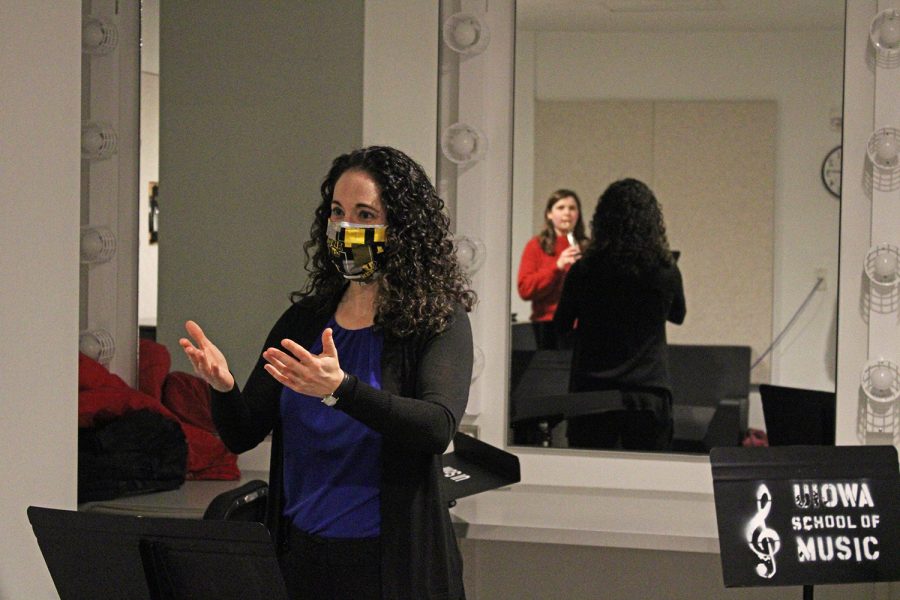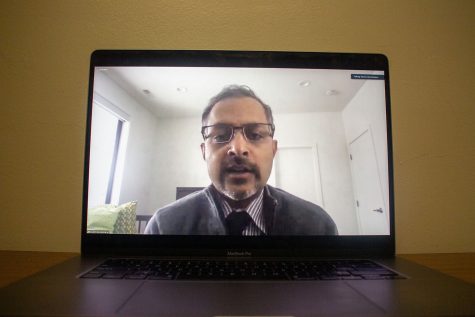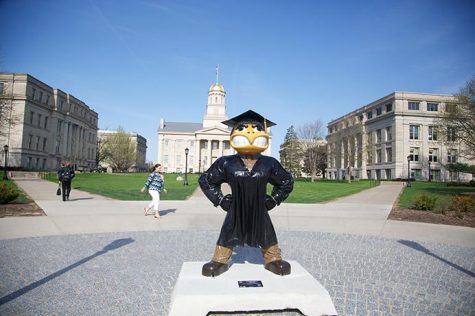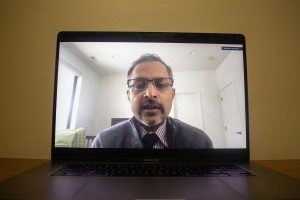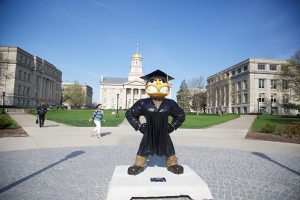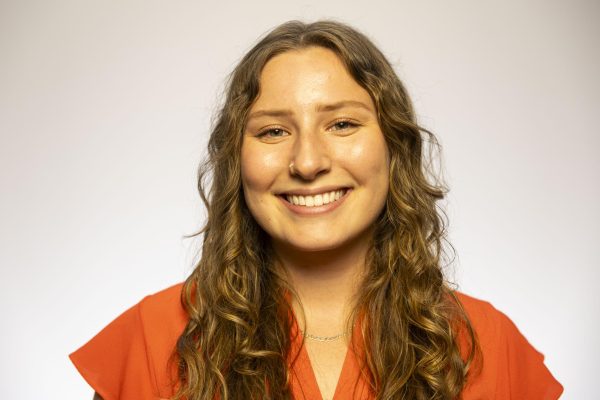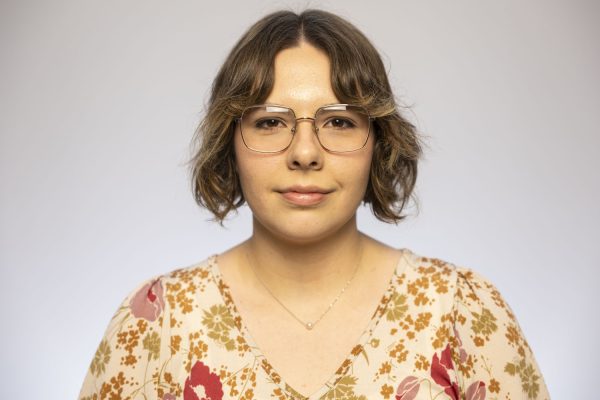University of Iowa professors share teaching strategies during COVID-19 faculty-run podcast
The UI Center for Teaching helped UI faculty while transitioning to all-virtual courses at the beginning of COVID-19, and UI professors say they plan to continue the teaching strategies that they learned after the pandemic ends.
Dr. Courtney Miller is seen during an oboe lesson with Allyson Kegel at the Voxman Music Building on Feb. 23. Kegel is a senior studying music education and oboe performance while Miller is an assistant professor of oboe.
February 24, 2021
A year after the pandemic slammed the University of Iowa, a faculty-based podcast has brought professors together to share their successes in teaching online.
Most classes at the UI were moved to online environments at the beginning of fall semester, something new for both students and teachers.
“Welcome to Keep Teaching Strategies… that highlights pedagogical strategies for virtual courses,” Anna Flaming, podcast host and interim director of the Center for Teaching, says as she opens each episode.
The podcast was recorded in the summer of 2020 over Zoom. In each episode, a UI faculty member shares their virtual teaching strategies, Flaming wrote in an email to The Daily Iowan.
In the spring of 2020, Flaming wrote that she heard helpful ideas from faculty members that could be shared with other instructors.
She selected instructors from different colleges and ranks of teaching to be featured on the podcast, Flaming wrote.
“Podcasts have become a really important resource for learning and connecting,” Flaming wrote. “As we start to imagine teaching and learning beyond the pandemic, this might be a useful forum for us.”
UI Professor of Physics and Astronomy Vincent Rodgers said multimedia strategies can work outside of the pandemic.
Rodgers said he implemented more group discussions in his virtual classes after listening to the Keep Teaching Strategies podcast.
“This is not just a student problem, this is a problem for the faculty as well, because faculty do struggle with how to communicate with students,” Rodgers said. “That doesn’t mean that their faculty member is not trying.”
UI Chair of the Department of Dance Rebekah Kowal was another one of the 14 UI faculty featured on the podcast.
Kowal said she quickly realized that teaching virtually on Zoom was boring her students, including herself.
“There’s a physical presence to teaching that is really important, not only in dance, but also especially in dance where we sense each other’s physicality,” she said. “On Zoom, you can’t sense that in the same ways, but we try to accomplish that through checking in with students every day,”
RELATED: Iowa City leaders, University of Iowa professors, express concern at end of state-wide mask mandate
A study by the National Center for Biotechnology found that 71 percent of college-age students surveyed showed an increase in stress and anxiety due to the COVID-19 pandemic.
Michele Williams, an assistant professor of management and entrepreneurship, said she still uses the teaching strategies she used at the beginning of the COVID-19 pandemic, like staying connected with students through Zoom.
Williams said her entrepreneurship classes focus around group projects.
“Putting people into just random breakout rooms so they can have that time to chat with each other that you normally have walking into class is important,” Williams said.
Although strategies have formed for professors while teaching virtually, UI Assistant Professor of Oboe Courtney Miller said she has offered one-on-one lessons and chamber groups in-person since the fall semester.
Miller said she works with students on Sunday when the large, COVID-19 mitigated, halls in the Voxman music building are available.
She said she wants to continue rehearsing in the large performance-style spaces after COVID-19.
“I think there are a lot of things we’re going to carry over,” Miller said. “When we get together, we really cherish that time.”
Flaming wrote that she knows a lot of faculty members have missed connecting informally with their colleagues about teaching.
“The podcasts have helped to bolster a community, just in a new way,” Flaming wrote. “Faculty members featured in the podcasts say that the teaching strategies they developed during the pandemic are things that they will continue doing forever.”



